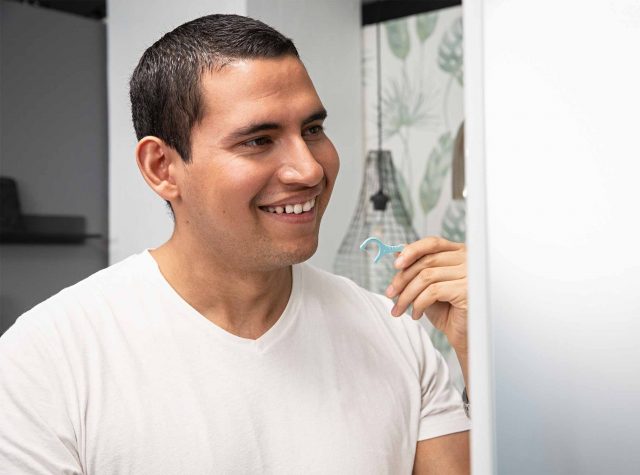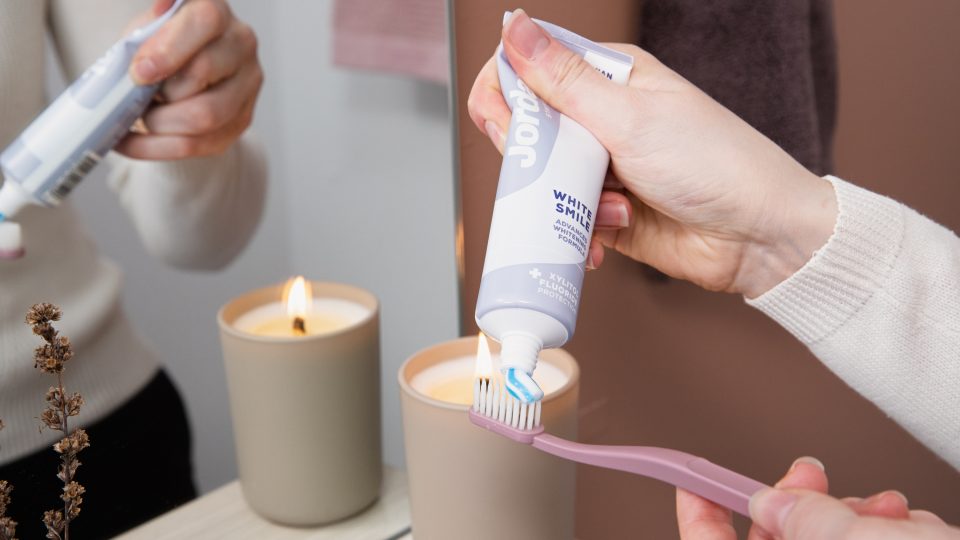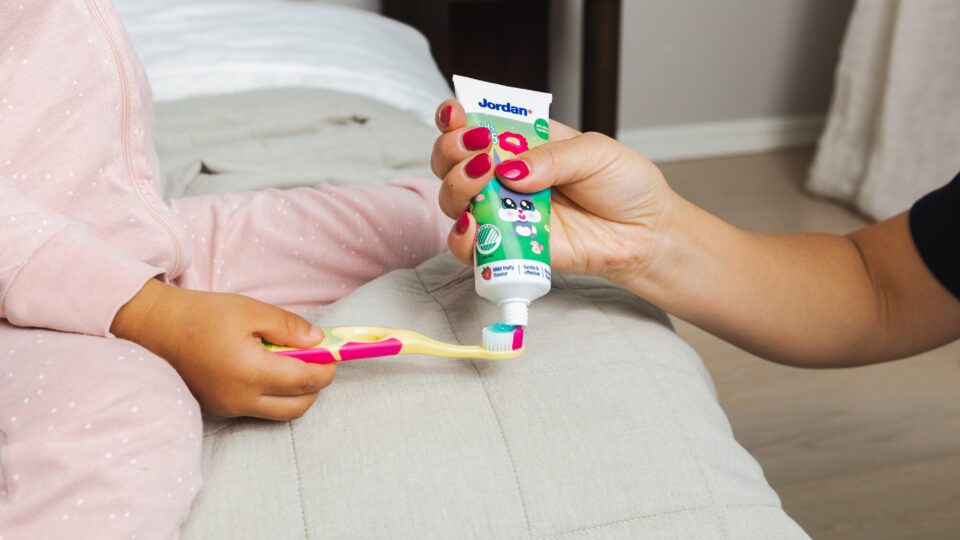What is caries?
Cavities, when a hole in a tooth is formed, is actually called caries. This is an infection caused by the bacteria normally found in our mouths. Caries develops when the natural bacteria is mixed with carbohydrates and sugars from our diet. The bacteria reacts with the carbohydrates and produce acid that wears through the tooth's enamel.

Susceptibility to caries varies from person to person, and in some parts of life we are more vulnerable to cavities than normal. Situations we are more receptive to caries is the first years after the teeth have emerged, and towards old age when the gums retract and the root is more exposed.
In addition, the combination of a high sugar diet or bad oral care habits can accelerate the development of caries, cavities in the tooth. Other factors that affect the development of caries is your overall health state, eating and drinking habits, substance abuse, oral hygiene and exposure to fluoride.
Caries is often skewed in society, most kids and young have little to no caries, whereas a small group have a large portion of total caries. Things that can affect this is socio-economic conditions as education level, economy and ethnic affiliation.
How does caries happen?
Caries often occurs where plaque is left in the tooth over time, like in the molars’ nooks and crannies, between the tooth, or along the gum line. The bacteria eats away on the enamel leading to a hole in the tooth. The saliva is our natural caries protection. Saliva neutralizes the acid within one to two hours after a meal. If the saliva contains fluoride the acid is neutralized ten times faster.
Caries starts as a small white spot on the tooth’s enamel. Systematic removal of plaque and brushing or rinsing with fluoride could stop the development of caries at this stage. If the development continues the enamel will be broken down, making the tooth’s surface less glossy and a small cavity appears. The bacteria will in this case continue into the dentin. Since the dentin has a different structure than the enamel this next stage often goes much faster.
The whole process of developing caries might happen painlessly, but the tooth might also feel more sensitive when chewing hot, cold, sour or sweet foods. If the caries attack is not treated the cavity will eventually keep going into the nerve and the root/ pulp. This kind of inflammation will be painful and last until the tooth is treated. If the cavity has reached the tooth root, you will have to get a root canal filling, where the inflamed tooth root is cleaned out and filled.
Three important preventive measures
Diet
Your diet plays an important role in the development of caries. The acids that attack the enamel is made from bacteria feasting on carbohydrates like sugar. The acid production happens the second carbohydrates enter the mouth. It cannot be stopped but reduced by cutting down on sugar.
You might also like: 6 tips to avoid acid damage on teeth
When and how often you eat also have a say in the development of caries. Eating or drinking between meals can cause the enamel to not have enough time to recover from the last meal. Sugary drinks between meals can be especially bad for your dental health.
FLUORide
Fluoride is a big part of avoiding caries. Studies show that the enamel becomes more resistant to acid and caries if it is treated with fluoride. In most countries, it is therefore recommended with 1000-1450 ppm fluoride in the toothpaste when brushing both morning and evening.
Oral hygiene
Brushing with fluoride toothpaste twice a day, combined with interdental cleaning like floss or interdental brushes limits the development of acid and caries by removing plaque that is sticking to the teeth. If there’s no plaque or sugars on the teeth caries does not appear.
You might want to read


Yellowing teeth: Myths and causes
Teeth discolouration is something we all have to deal with at some point in our life. There are several reasons that cause the yellowing of…
Read more
How much toothpaste should kids use?
Jordan's step toothbrushes come with a toothpaste guide, but how much toothpaste should children use at what age? Here's a guide for every stage of…
Read more